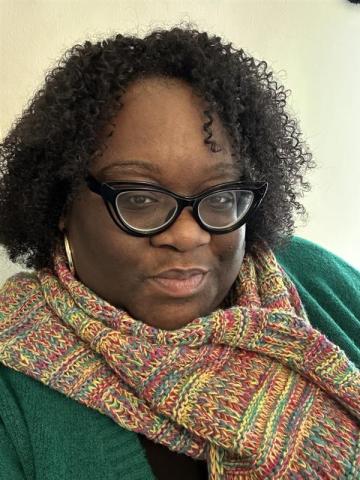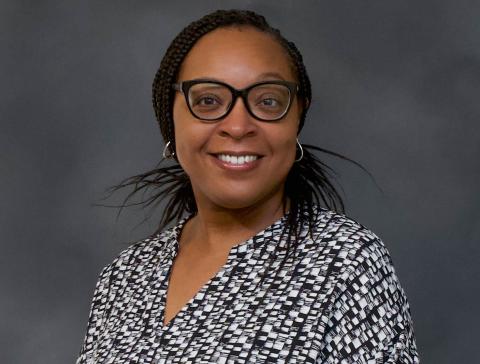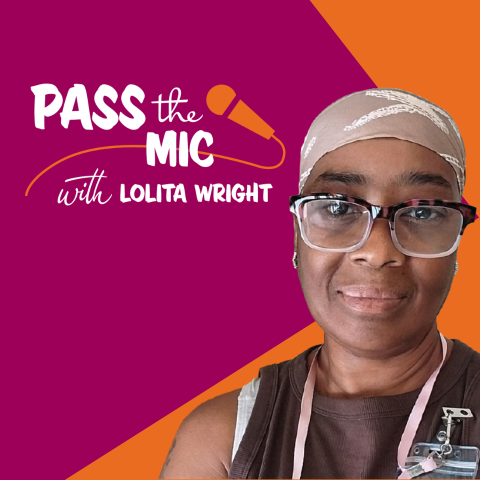Care with dignity in a new place
Abena* felt sick and sluggish for weeks after fleeing Ghana and arriving in Maryland. She couldn’t afford the $25 copay at a community clinic. Plus, she had more pressing matters on her mind, like fending for her son.
Asylum is a legal process that allows people fleeing from torture, violence and persecution in their home countries to seek safety here. Often not allowed to work or access benefits, 40% of asylum seekers in the US face homelessness. And like Abena, most have unmet health needs as a result of severe trauma.
“Naturally when you’re worried about your personal safety, you’re less likely to prioritize seemingly smaller health issues,” says Tiffany Nelms (pictured above), Executive Director of Asylee Women’s Enterprise (AWE).
Last August, the Health Care for the Homeless mobile clinic began delivering medical care at AWE, an organization in northeast Baltimore that connects women like Abena with food, housing, therapy and community. “Bringing care to women at AWE is extremely important,” says Community Health Worker Justine Wright. “We regularly see women who have never had a pap smear or routine screenings. Through us, they get care that would have been completely out of reach.”
This new partnership saved Abena’s life. Abena found out she had lupus, an autoimmune disorder that can be fatal without treatment. “I still help her get to appointments,” Justine says. “And she’s on the right track.”
“Homeless.” “Refugee.” Regardless of the labels that society may put on us, we all need a safe place to go when we get sick - and that place is Health Care for the Homeless.
*Abena is a pseudonym
For more ways to help women seeking asylum, visit www.asyleewomen.org, www.lirs.org or www.rescue.org.
More Recent News
After a year of serving as Practice Manager of West Baltimore, Alkema Jackson is moving into the new role of Director of Practice Operations, Community Sites! She joined Health Care for the Homeless in 2022 as the Client Access Project Coordinator, collaborating across departments to help more people connect to agency services, and in 2023, she received a Core Value Award for Hope. Read on to learn more about Alkema’s approach to this new position…
Meet Christana Greene, our new Director of Compliance! With more than five years in the compliance field—most recently as Senior Quality and Patient Safety Specialist at GBMC Healthcare—Chrissy brings frontline insight to the role. She began her career as a medical assistant, gaining firsthand experience in what it takes to keep care safe and operations running smoothly. In her new role, Chrissy is focused on building a compliance culture grounded in safety, integrity and accountability. Read on to learn more about Chrissy...
Baltimore gets dangerously cold, and too many of our neighbors are out there.Here are three simple things you can do to make a difference in someone’s life this winter.
Meet Lolita Wright, a mother and caregiver. Lolita is never leaving Baltimore. She shares her parents' love of music and determination.





